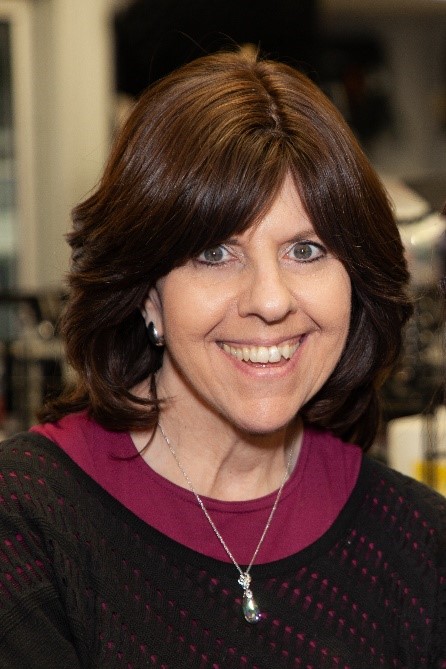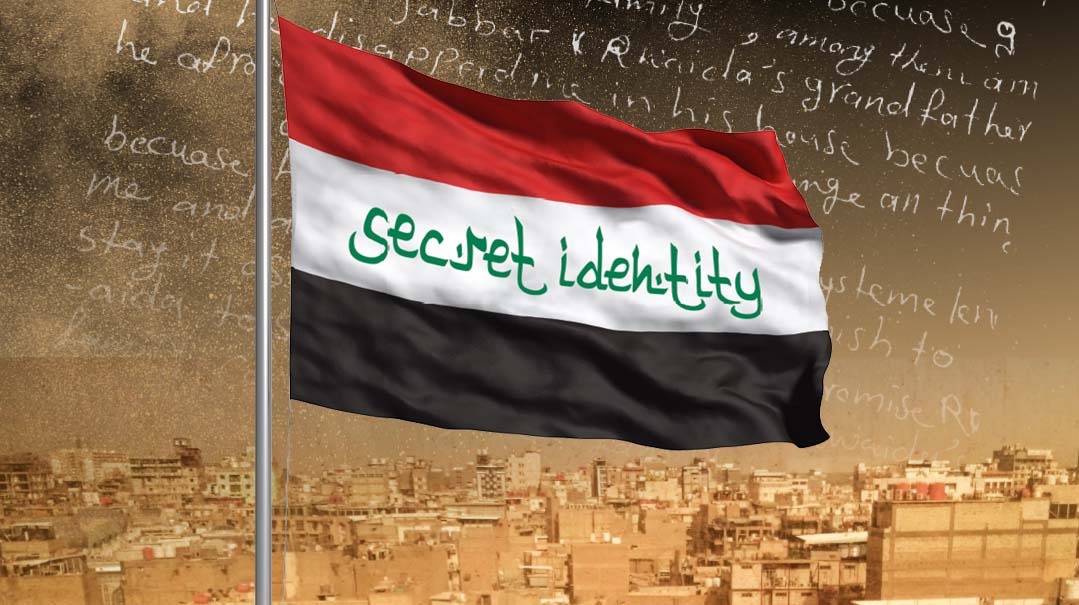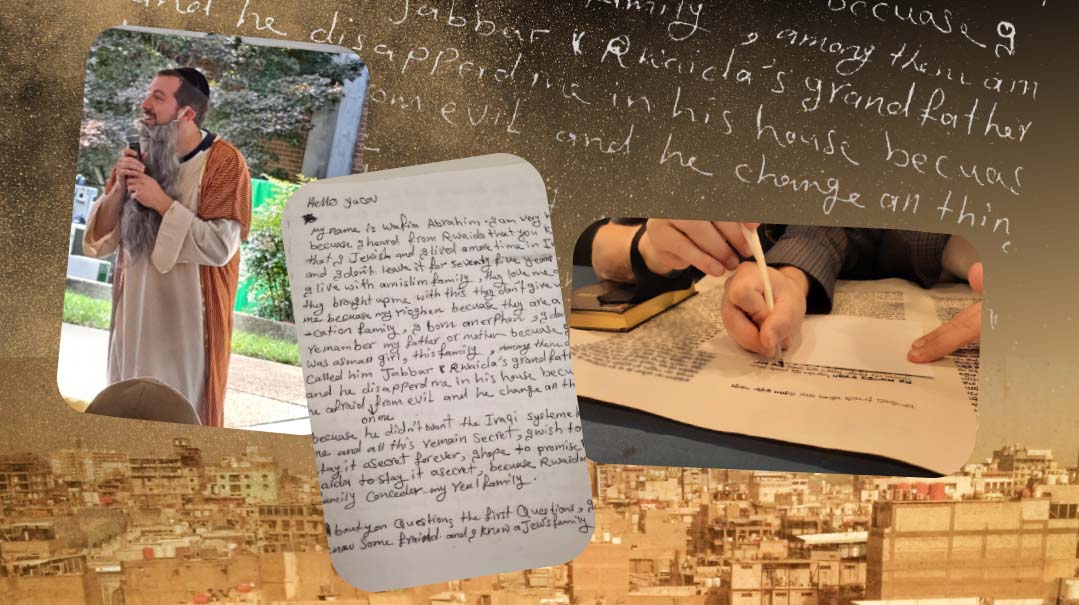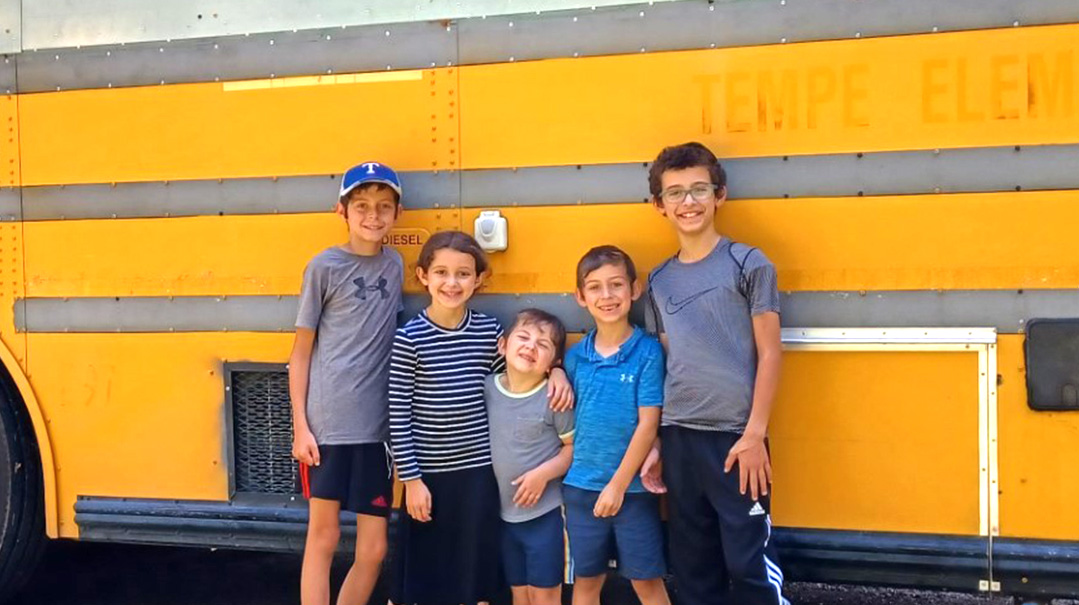Wafia’s Secret

Wafia Abrahim was finally able to share her secret. This is her story…

Arabic Translates into Hashgachah
A couple of years after the 9/11 World Trade Center Twin Towers attack, when US forces mounted an invasion of Iraq, a Jewish soldier in the US Army signed up to go. Yacov Margolese was deployed in Iraq from April 2003 until April 2004.
“We had four Iraqi interpreters with us, since we didn’t know Arabic,” recalls Yacov. “One was about 65 years old; his name was Mohammed; two were in their early twenties; their names were Mohammed and Ali. The third was Rwaida, a woman in her late thirties. At some point, I told them I was Jewish. I got three very distinct reactions. The older gentleman became visibly scared, backed away from me, and said in Arabic, ‘No Jews, no Jews!’ The two younger ones started talking to me in Hebrew and told me they worked for the Mossad, the national intelligence agency of Israel. And the woman interpreter said to me, ‘My mother is Jewish!’”
Yacov was obviously shocked and said to her, “That means you’re Jewish, too!” She told him she wasn’t; she was adopted. It showed Yacov how much she knew — that the Jewish lineage can only be passed down from a birth mother to her daughter.
“Soon after Rwaida met me, she told her mother Wafia that she met a Jew. Wafia wanted to write to me,” continues Yacov. “We started corresponding and when Rwaida brought me the first letter from Wafia, she also gave me a section of a Torah klaf (parchment) that belonged to Wafia to prove that her mother was Jewish. I was in tears. I was thinking, this is incredible. I gave the klaf back to her but the next time I met Rwaida, she gave it to me again and said her mother wanted me to have it; it was one of several klafim she owned.”
The Letters Tell All
How Wafia — who was born in Iraq in 1918 — got these klafim was revealed to Yacov in one of Wafia’s letters. “She wrote that she became orphaned after her parents were killed when she was about five years old,” reveals Yacov. “A Muslim family risked their lives to hide her at a time when it was dangerous to be a Jew living in Iraq. They raised her as Jewish as they knew how to. Not only did this family take her in and save her life, they did their best — and successfully — to make sure she stayed connected to her Jewish heritage. They saved the klafim that her parents had in their home, and gave them to her. What an incredible testament to how kind and self-sacrificing humanity can be.”
Wafia and Rwaida are no longer alive. Wafia would be well over 100 years old if she were alive today; Rwaida was killed by a Rocket-Propelled Grenade (RPG) a year after Wafia died. While Yacov was in Iraq, Wafia was given the opportunity to leave Iraq, but she turned it down.
Yacov says, “Between April 2003 and April 2004, there was a clandestine operation by the Israel Defense Forces (IDF) and the US Army to take out any of the remaining Jewish people who wanted to leave Iraq. We asked Wafia if she wanted to join and she said, ‘No, thank you! My whole family is here, my whole life is here.’ Wafia never had children of her own — Rwaida was but one of her adopted children — and she had grandchildren from them, also. She did not want to leave them behind.”

The Klaf’s Inspiration Lives On
Yacov Margolese is the oldest brother of Director of Institutional Advancement & Development Rabbi Moshe Margolese, of Ohr Chadash Academy (OCA), a school in Baltimore, Maryland, USA, which some of my local grandchildren attend. Rabbi Margolese was so impressed by the amazing story of the klaf — which his brother returned home with from Iraq — that he was inspired to dedicate 5781 as the “Year of Connection” at OCA. He is using the school’s new sefer Torah to connect his students’ family members, far and near, just as Wafia kept her connection to Yiddishkeit and the Jewish people through the klaf passed down from her parents.
Rabbi Margolese spent this past summer traveling around the US and Canada to enlist the help of the students’ out-of-town grandparents in writing a sefer Torah that will be housed in OCA’s renovated beis medrash. Together with Rabbi Moshe Druin, a traveling sofer (Torah scribe) of the Florida-based company “Sofer on Site International,” Rabbi Margolese traveled to Seattle, Los Angeles, Toronto, Chicago, Minneapolis, Lakewood, Philadelphia, Cherry Hill, Detroit, Miami, and New York, with more on the way. Their travel itinerary even included grandparents living in Eretz Yisrael, but that part of their journey is on hold until the border opens up to foreigners.
Over Aseres Yemei Teshuvah, my husband and I joined our grandchildren and their parents — and several other local grandparents, great-grandparents, and families — at the OCA campus in Baltimore to fill in one of the sefer Torah’s letters that were left for OCA families to complete. Prior to the families taking their turn, the school’s posek, Rabbi Binyamin Marwick, rav of Congregation Shomrei Emunah in Baltimore, and Rabbi Druin washed negel vasser before filling in the first Baltimore letter. As they did, the crowd, seated in an outdoor tent, sang a very heartfelt chorus of “Acheinu,” led by Nossi Gross of Zemer Orchestra, followed by very lively singing and dancing. The atmosphere was festive — with fun Moon bounces and the distribution of carnival foods and stuffed sifrei Torah. Of course, before filling in their letters, the individual family members washed negel vasser, as well.
As Rabbi Margolese explained at the Baltimore event, “The klaf from Iraq had the last parshah, Zos Habrachah and Ha’azinu, ‘the song of the Jewish people,’ inscribed on it. This is what connected Wafia to the Jewish people, as one of only 36 Jews living in an entire country. We wanted our sefer Torah to come alive; we wanted it to be yours, and we wanted to involve as many people as we could. So we worked with Rabbi Druin and got a mostly written sefer Torah and left about 1, 000 letters outlined. Then, we started to travel with this sefer Torah klaf. So far, we visited two countries and ten cities, having our grandparents, great-grandparents, and family members fill in these letters. Now, we are starting our Baltimore leg of this journey and hopefully, if the border opens, I will be able to go to Eretz Yisrael with our scribe and meet some of our students’ grandparents there as well.
Facts to Know and Tell
The 2003 invasion of Iraq was the first stage of the Iraq War.
The coalition of US President George W. Bush and UK Prime Minister Tony Blair aimed “to disarm Iraq of weapons of mass destruction, to end Saddam Hussein’s support for terrorism, and to free the Iraqi people.”
The key event in the world that led to the invasion of Iraq was the September 11, 2001 attacks in America.
The Iraq War lasted from March 20, 2003 – December 15, 2011.
An Important Lesson
It has been more than 17 years since Wafia shared her secret. For Yacov, fighting for our freedom in Iraq and being Wafia’s confidante provided a very important lifelong lesson.
“Unfortunately, I grew up with an ‘all Arabs are bad’ stereotype; just the way Muslims grow up with an ‘all Jews are bad’ stereotype,” concludes Yacov. “If you think about that older interpreter — who was a teenager when the Jews were kicked out of Iraq — you know that all he heard was negative stuff growing up. I was probably the first Jewish person whom he interacted with since he was a kid, so he was scared… Perhaps people will start to reflect as I did: ‘If it is not true about me, maybe it is not true about them!’ That was eye-opening for me — to see the beauty, kindness, self-sacrifice, and courage in humanity.”
Im yirtzeh Hashem, on December 5, we will celebrate with a sefer Torah dedication in Baltimore, and have our students lein from this Torah for many years to come.
(Originally featured in Mishpacha Jr., Issue 884)
Oops! We could not locate your form.






